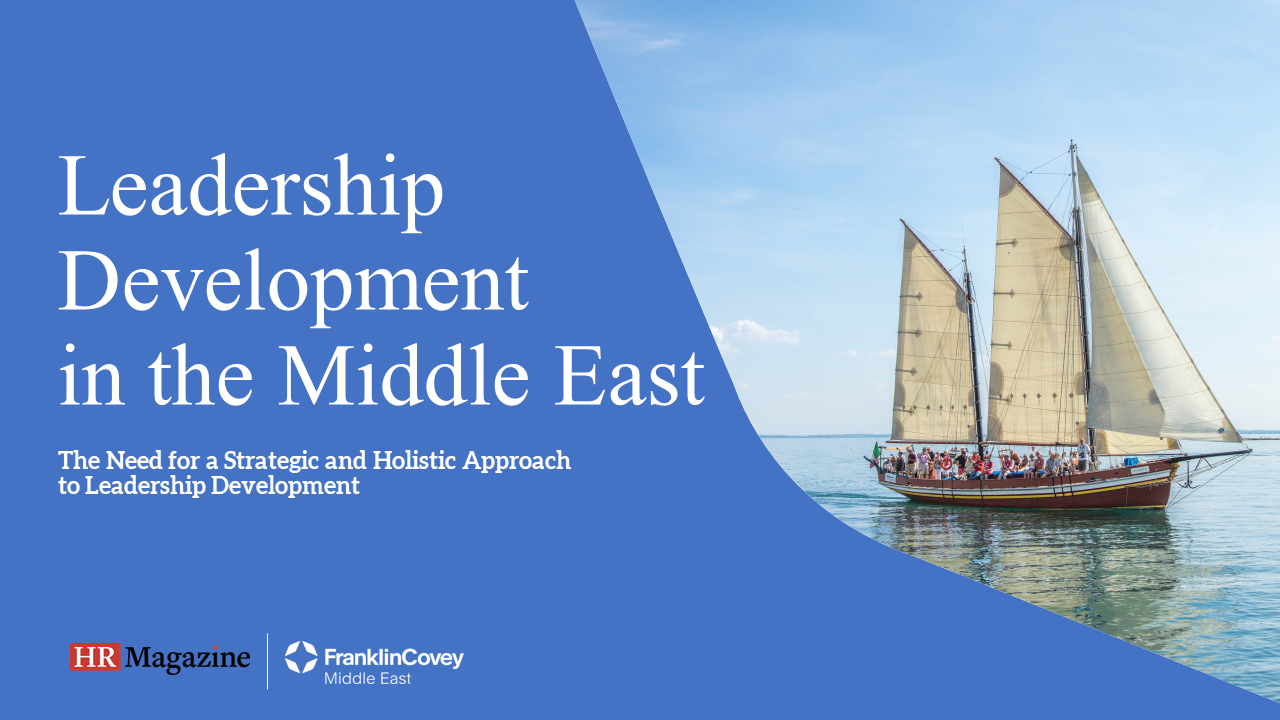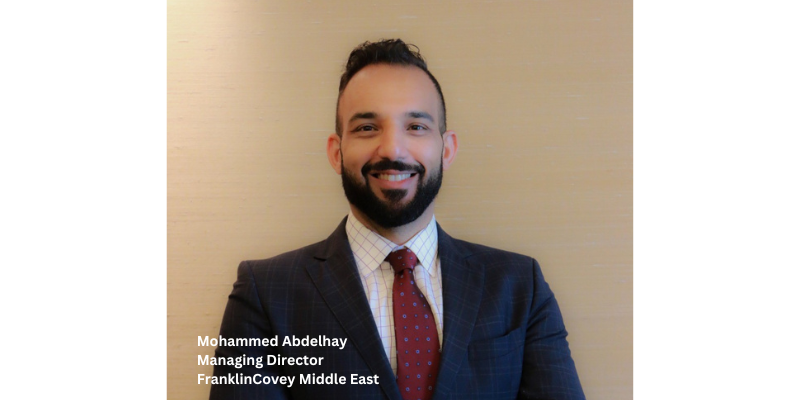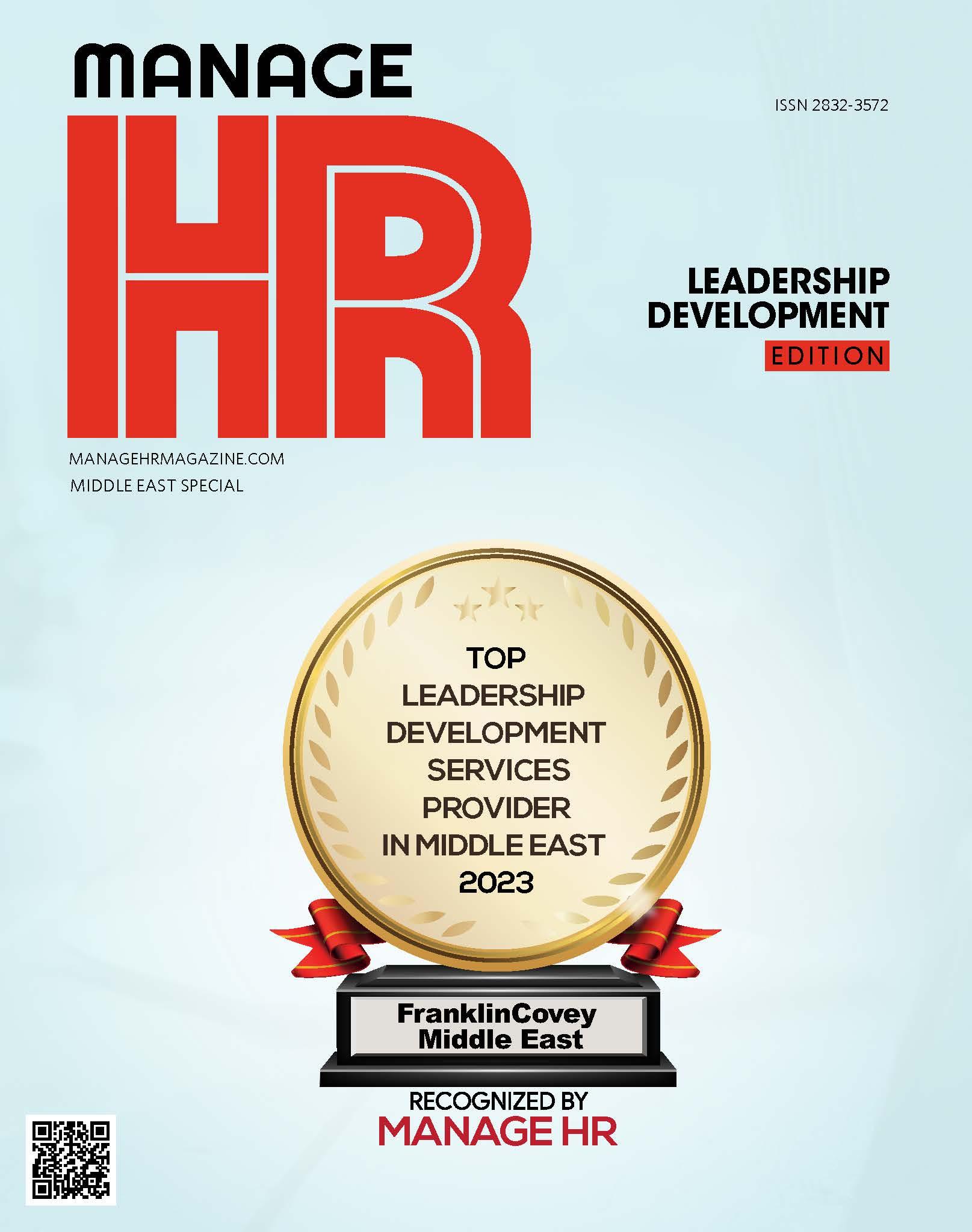In one of the rapidly evolving markets, the middle east is characterized by a fast-paced work environment and dynamic economy, organizations throughout the region must formulate strategic approaches to leadership development in order to guarantee longevity and achieve optimal business outcomes. Explore the insights shared by Mohammed Abdelhay, Managing Director of FranklinCovey Middle East, in a recent HR Magazine article, where he outlines key strategies for leaders to improve organizational performance.
With the Gulf region shifting its focus away from a heavy reliance on oil and gas, there is a growing recognition of the need to diversify its economy. As this transition progresses towards a more diverse economic model, there is an increasing demand for leaders who can effectively navigate these changes and drive innovation and efficiency. These diversifications are increasingly connected to the global economy, and leaders in the region need to adapt to new technologies and work in a global context.
“The Gulf region’s leadership development landscape is evolving to meet the demands of a changing business environment,” says Mohammed Abdelhay, Managing Director of FranklinCovey Middle East.“ Challenges such as talent shortage and upskilling persist but can be addressed through strategic development efforts. Organizations need to embrace technology, focus on soft skills, engage their people, and develop future leaders.”
The future of leadership development and behavioral change in the Middle East is likely to be shaped by a combination of global trends and region-specific dynamics. It will be influenced by the specific needs, cultural contexts, and economic dynamics of the region. Adaptability and a willingness to embrace these emerging trends will be crucial for organizations and leaders seeking to thrive in the evolving landscape of leadership development and behavioral change in the Middle East.
As organizations look to build an intrinsic future, they need to enhance leadership capabilities and a culture of high performance and innovation through a strategic and holistic approach. Mohammed offers specific pieces of advice for organizations in the region:
Invest in Leadership Development
1. Prioritize leadership development programs that are tailored to the unique needs and challenges of your organization and industry.
2. Offer continuous learning opportunities for leaders at all levels, from emerging leaders to senior executives.
3. Embrace technology for delivering training and development programs, making them accessible and engaging.
Promote Inclusive Leadership
1. Create opportunity by looking for potential in every team member and addressing barriers to success.
2. Cultivate team inclusion by engaging the team to shape and sustain culture.
3. Provide training on inclusive leadership to help leaders create an environment where every team member feels valued and empowered.
Embrace Innovation
1. Create a culture that encourages innovation.
2. Establish innovation labs or teams dedicated to exploring new ideas and technologies.
3. Encourage cross-functional collaboration to drive innovation.
Focus on Soft Skills and Emotional Intelligence
1. Recognize the importance of soft skills and emotional intelligence in leadership. Offer training and coaching to enhance these competencies.
2. Develop leaders who excel in areas like empathy, communication, adaptability, and conflict resolution.
Set Clear Expectations and Goals
1. Ensure that leaders understand their impact on the organization’s success.
2. Establish measurable performance metrics and objectives aligned with the organization’s goals.
Encourage Risk - Taking and Learning from Failure
1. Cultivate a safe environment where employees and leaders feel comfortable taking calculated risks.
2. Promote a growth mindset that views failure as an opportunity for learning and improvement.
Lead by Example
1. Senior leadership should model the behavior they expect from others. Demonstrate a commitment to high performance, innovation, and ethical leadership.
Promote Work-Life Balance
1. Recognize the importance of work-life balance in maintaining high performance and preventing burnout among leaders and teams.
2. Encourage policies and practices that support employee wellbeing. Enhancing leadership capabilities and building a culture of high performance and innovation is an ongoing process. It requires commitment, adaptability, and a willingness to evolve as both internal and external dynamics change. By investing in leadership development and fostering a positive workplace culture, organizations in the Middle East can position themselves for longterm success and growth.



